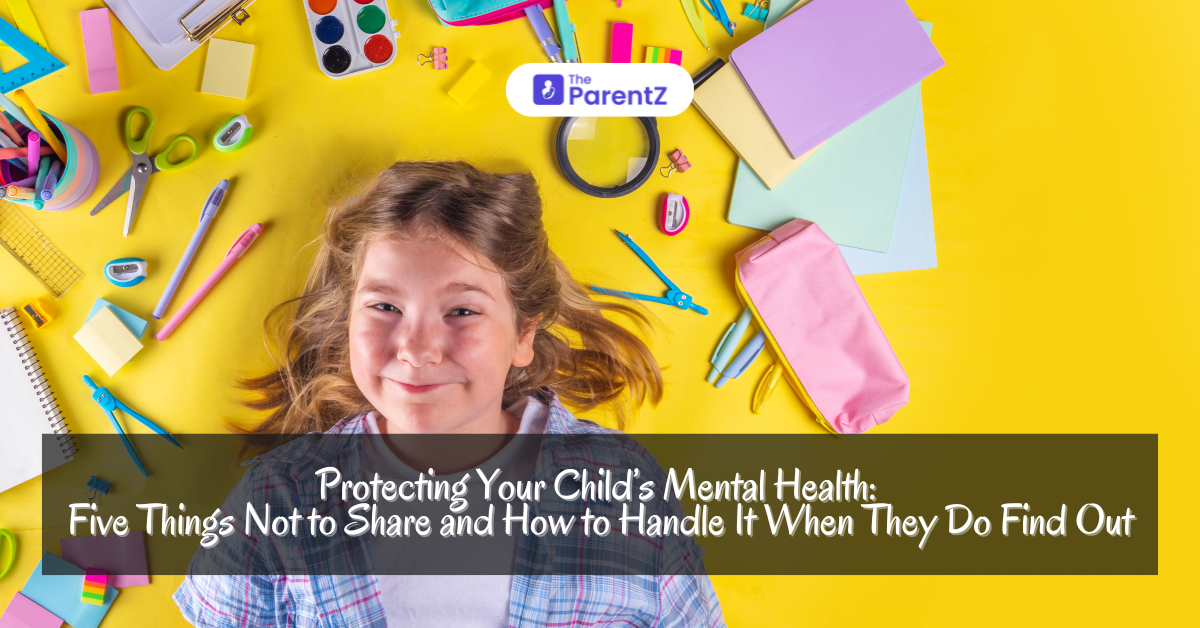Raising children is a rewarding yet challenging journey that requires careful navigation of what information to share with them. As parents, our actions and words significantly impact our children’s mental health. Certain topics, such as parental conflicts, financial struggles, and negative emotions, can be particularly harmful. This article delves into why you should avoid discussing these issues with your children, the potential long-term consequences, and strategies for managing situations where they become aware of these challenges.
1. Fight with Your Partner
Impact on Child’s Mental Health:
Children thrive in a stable and harmonious environment. Witnessing conflicts between parents can instill feelings of insecurity, fear, and anxiety. They might blame themselves for the discord, leading to guilt and low self-esteem.
Long-term Consequences:
Children who grow up in conflict-ridden homes are more likely to develop anxiety disorders, depression, and relationship issues in adulthood. They may struggle with trust and have difficulties forming healthy relationships.
Handling the Situation:
If your child becomes aware of conflicts, ensure they understand it’s not their fault. Reassure them of your love and commitment to resolving the issue. Seek family therapy to address and mitigate the negative impact on their mental well-being.
2. Conflict with In-laws
Impact on Child’s Mental Health:
Family dynamics involving conflicts with extended family members can create a confusing and stressful environment for children. They might feel torn between loyalties and experience heightened anxiety.
Long-term Consequences:
Prolonged exposure to family conflict can result in chronic stress, affecting the child’s emotional development. They may develop a negative perception of family relationships, impacting their future interactions.
Handling the Situation:
Shield children from these conflicts as much as possible. If they become aware, provide age-appropriate explanations without assigning blame. Encourage open communication and emphasize the importance of respect and understanding in family relationships.
3. Financial Troubles and Situations
Impact on Child’s Mental Health:
Discussing financial problems with children can lead to unnecessary worry and stress. They might feel responsible for the family’s financial stability or develop fears about their future security.
Long-term Consequences:
Children exposed to financial stress may develop anxiety and a scarcity mindset. This can affect their academic performance and future financial behaviors, potentially leading to financial insecurity in adulthood.
Handling the Situation:
Maintain a positive and reassuring attitude. If your child becomes aware of financial difficulties, explain the situation in simple terms and assure them that it’s being managed. Teach them about budgeting and financial planning to build their confidence and understanding.
4. Work Issues
Impact on Child’s Mental Health:
Sharing work-related stress with children can transfer the burden of adult responsibilities onto them. They might feel helpless or anxious about their parent’s well-being and job security.
Long-term Consequences:
Children who internalize their parents’ work stress may develop chronic stress and anxiety. They might also struggle with balancing work and personal life in the future, leading to burnout.
Handling the Situation:
Discuss work in a positive light and avoid venting frustrations in front of your child. If they become aware of work-related issues, explain that everyone faces challenges and that you are handling it. Encourage them to focus on their interests and activities.
5. Negative Feelings
Impact on Child’s Mental Health:
Expressing negative emotions like anger, frustration, or sadness in front of children can be overwhelming for them. They might feel responsible for their parent’s emotions or develop a negative outlook on life.
Long-term Consequences:
Children exposed to frequent negative emotions may develop emotional instability and difficulty coping with stress. They might also struggle with expressing their emotions healthily, leading to potential mental health issues.
Handling the Situation:
Model healthy emotional regulation by expressing your feelings constructively. If your child witnesses your negative emotions, explain that everyone has bad days and it’s okay to feel that way. Teach them coping strategies and emphasize the importance of seeking support.
Conclusion
Protecting your child’s mental health is paramount, and being mindful of what you share with them plays a crucial role in this. Avoiding discussions about conflicts, financial troubles, work issues, and negative feelings can help create a stable and nurturing environment. If children do become aware of these challenges, it’s essential to address their concerns with honesty, reassurance, and appropriate support. By fostering a positive and supportive home environment, you can help your child develop resilience and emotional well-being, laying the foundation for a healthy future









Be the first one to comment on this story.